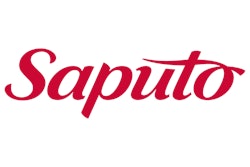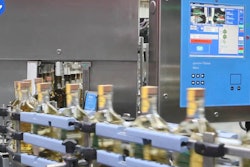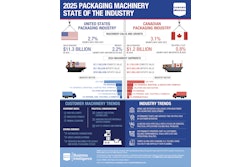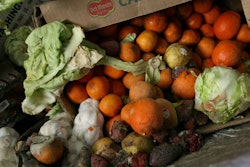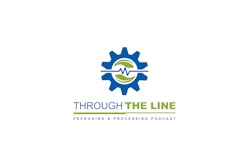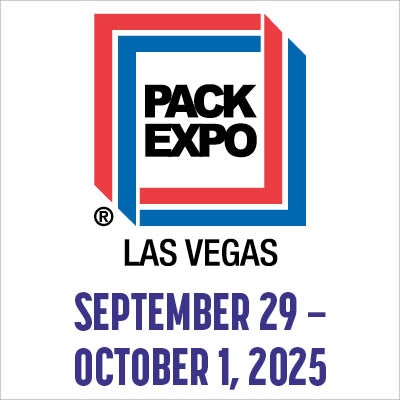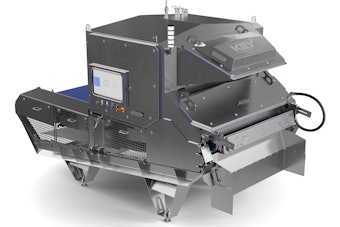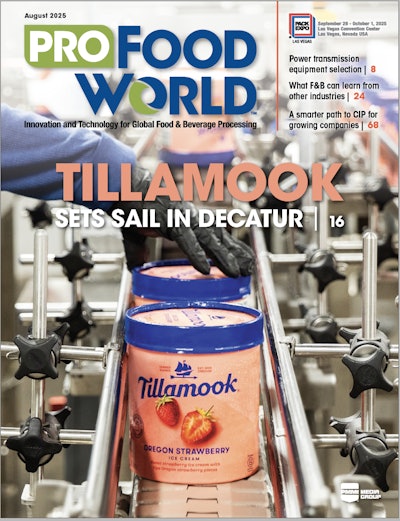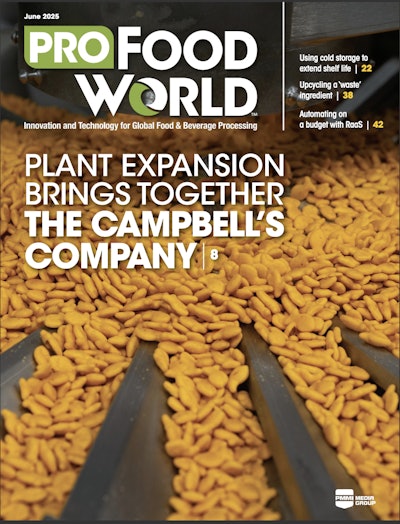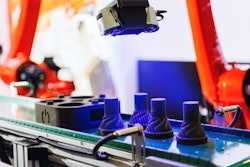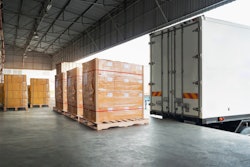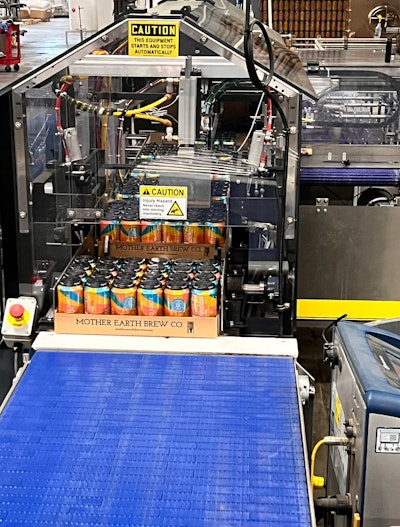
Mother Earth Brewing Company started as a hobby for Daniel and Jon Love, and Kamron Khannakhjavani in 2010 in San Diego. The company operated out of 2,200-sq.-ft.-industrial space, which allowed the business to grow quickly and for the company to begin self-distribution of 22-oz. bottles and kegs to stores, bars, and restaurants. A large Tap House in Vista, Calif. followed and gave the company more opportunities to expand its production space and craft beer packaging line —adding nearly 28,000 sq. ft.
The brewer entered major distribution in late 2013. After double-digit growth in 2014, Daniel Love wanted to expand operations but had a hard time doing business and finding new opportunities for growth in Southern California.
“It's just not a business-friendly state for someone of our size, less than a hundred employees,” Daniel Love says.
Expanding up north
So, as many Californians do, Daniel Love headed up north to Boise, Idaho where they found plenty of opportunities to partner with the local government and initiatives that supported small businesses like theirs.
The company built a 40,000-sq.-ft. production facility 15 miles west of Boise in the neighboring city of Nampa, which provided them a lot of space to sprawl.
The facility houses a 40 beer barrel volume (bbl) multi-vessel Mueller brewhouse, and the capacity to produce more than 100,000 bbls a year, becoming one of the largest breweries in Idaho, according to the company. The Nampa production facility supports most of the company's growth and produces beer for all markets outside Southern California. The original Vista brewery continues to provide draft and specialty offerings to its home market while also managing the creation of one-off brews for visitors at its retail operations in North County San Diego.
Under the brand, there are eight different year-round beers, including its claim to fame, the Cali Creamin’ vanilla cream ale.
“It sounds like it might be sweet, but it’s a dry beer,” says Daniel Love. “We use Madagascar vanilla bean. It is very special and unique. Nobody else does this type of beer.”
Automated cartoner allows Mother Earth to scale amid pandemic woes
As the COVID-19 pandemic began, it also created a few obstacles for the craft company amid its record growth. Its tasting room in California shuttered, but the company kept its draft beer brewery operation in Vista to keep distribution flowing in Southern California via Stone Brewing. Currently, the Nampa facility still distributes to 20 different states and 11 different countries, while also filling in where the Vista brewery can't. All in all, business is good as the company puts out about 10 million cans per year.
In March of 2020, the company brought one of its Wild Goose canning machines up to Nampa—where it already had another of the same machine—from its California location, which allowed them to ramp up to 80 cans/min.
 | Read this story about an automated canning line that improves efficiency and reduces costs |
The company spends 70% of its time running 24-count mix packs and the other 30% of the time running 12-packs with its Cali Creamin', Tierra Madre, and Boo Koo beers. Up until recently, the packing was handled manually, but record labor shortages and the amount of variety necessitated automation.
The company invested in an Econocorp Spartan cartoner, which allowed it to automate the case and tray erecting and packing.
 The company invested in an Econocorp Spartan cartoner, which allowed them to automate the case and tray erecting and packing.
The company invested in an Econocorp Spartan cartoner, which allowed them to automate the case and tray erecting and packing.
“We do a lot of stuff in 24-pack trays,” says Chris Baker, director of brewing operations. “But we were also trying to touch on that carton side of the business. We wanted something that would do both because, individually, the two machines are expensive. So, getting something that was a good bridge between them was what we were looking for, and the Spartan really covered that.”
Not only was the company packaging both 12-pack cartons and 24-pack trays for its different beers, but some brands added in the complexity of having both 12- and 16-oz cans. This necessitated a cartoner that allowed them to changeover often with ease. Now, they can change the Econocorp cartoner over in less than 20 minutes, which doesn’t negatively impact production goals.
“We're kind of all over the place, so packaging needs to be pretty nimble so that we can get onto one brand and knock out four different formats and then get into another brand,” Baker says.
Keeping up with demand
It was also important to find a cartoner that could keep up with their canning line capabilities but also adapt to a larger and faster operation as the company grows.
 | Listen to this podcast on
how to bridge the skills gap through partnerships |
“We want to look at 200 to 250 cans/min. next, and this machine can keep up with it,” Baker says. “At our size, that's a tough machine to find, because the reality was everyone else wanted to sell us something that would either work for the next six months or be so expensive and so over-the-top that it would be overkill for the next year or whatever it takes us to get into a bigger line. This is something we can grow into and expand upon pretty easily.”
 The cans run through two separate Wild Goose WGC 250 canning lines, where cans are rinsed and sanitized by two twist rinsers, filled, and seamed.
The cans run through two separate Wild Goose WGC 250 canning lines, where cans are rinsed and sanitized by two twist rinsers, filled, and seamed.
How the line works together
The Econocorp cartoner is the latest addition to Mother Earth Brewing’s filling and packaging line, but there is a lot more going on upstream keeping the company at its target of 80 cans/min.
The company runs two separate lines, starting with a Ska Can-I-Bus depalletizer, to which the company upgraded in 2020. The cans run through two separate Wild Goose WGC 250 canning lines, where cans are rinsed and sanitized by two twist rinsers, filled, and seamed. Mother Earth has been running its Wild Goose lines for the past six years.
“There are an infinite number of adjustments and ability to adjust things,” Baker says. “If I run a milk stout, I can slow my belts down to give it time to foam out how I want. It's more versatile. While I can't run super high carbonation levels, I can run nitro beers. We run everything through that.”
Custom conveyance brings the two lines together to apply date-codes using Domino A320i ink jet printers through a Heuft Basic low fill/low pressure detector, a Chart Industries nitrogen doser, an Anton Paar CBox, and a Zahm piercing unit to check dissolved oxygen levels.
 Custom conveyance brings the two Wild Goose lines together and sends cans through a Heuft Basic low fill/low pressure detector.
Custom conveyance brings the two Wild Goose lines together and sends cans through a Heuft Basic low fill/low pressure detector.
“Along with the Anton Paar CBox, we do have a very extensive laboratory, and a lot of breweries our size don’t have that,” Daniel Love says. “We do pull off a number of cans in line at the beginning, the middle, and the end and we store them warm, cold, and hot. We taste those about every other Friday with our brewers, so we have an extensive ability to react to somebody if they get a beer and they light us up on Facebook or send us an email. We know before we put something in the can that the product is going to be exactly what it needs to be and there aren’t going to be any inconsistencies in it.”
Keeping the line moving
After the cans run through inspection, they are fed onto an accumulation table, which allows the company to keep fillers running if equipment backs up or slows downstream.
“We try to think the setup through so that we could add in bigger pieces without having to change everything,” Baker says.
For higher volume beers like the Cali Creamin’, Mother Earth uses printed cans, which run straight into a PakTech can carrier applicator 120/180 from the accumulation table. The applicator can be configured for a six-pack or four-pack.
For lower volume beers that may not meet supplier minimum order quantities (MOQ) like Project X, which is a year-round rotating beer that has new labels and new artwork all the time, Mother Earth can side-stream these cans to a Pack Leader PL-501 can labeler, which applies pressure sensitive labels from local Boise-based label maker Action Quality Printers.
From there, a long infeed conveyor brings cans to the Econocorp cartoner.
“We set it up so that we could put some tables on it and make that feed pretty easily.” Baker says, “We set these tables along the side, and then we just push these on with these lanes and we now have the ability to either do six varieties, four cans of each. We could do two varieties, with 12 each, or we could do two varieties, six each, and a 12-pack. We can do literally anything we want.”
 | Watch this video report on innovative new marking, coding, and digital machinery found at PACK EXPO Las Vegas |
Then, a four-foot conveyor leads cans to another Domino A320i date-coder to code the outside of the cartons.
“Some brands are still missing on that front and it's really frustrating to buy a 12-pack of an IPA, you're really excited, take it home, and realize it's really old,” Baker says. “So, we code the outside of those.”
A gravity feed conveyor takes the cans to a stop point where three to four people hand-stack cases onto a pallet in preparation for the company’s pallet wrapper.
What’s next for Mother Earth
As the company continues to scale, Daniel Love and Baker are building flexibility into their operations and line so that when the time comes, they can ramp up to 200 to 250 cans per minute. But they are also keeping an eye on quality. Along with its extensive testing, the company has also developed an internal shelf life assessment called 30, 60, 90 where they test the beers 30 days after packaging, 60 days after packaging, and 90 days after packaging, as well as under different conditions.
“Knowing what's going on with your product as it goes through its life cycle is important,” Baker says. “Now, if somebody brought us a beer and they're like, ‘What's wrong with this?’ I could tell you just from the taste how old it is, how many days it's been warm, and how it's been stored. The reality of it is once the beer leaves your facility, you really don't know what happens to it.”
Mother Earth’s lifecycle analysis, which provides valuable insights on beer quality even after it leaves the brewery, helps identify and account for distribution issues that could negatively impact a beer that left the facility fresh and delicious. These steps improve insight into the whole operation, including the craft beer packaging line, and inform the company on how to keep quality as high as its fans expect.






